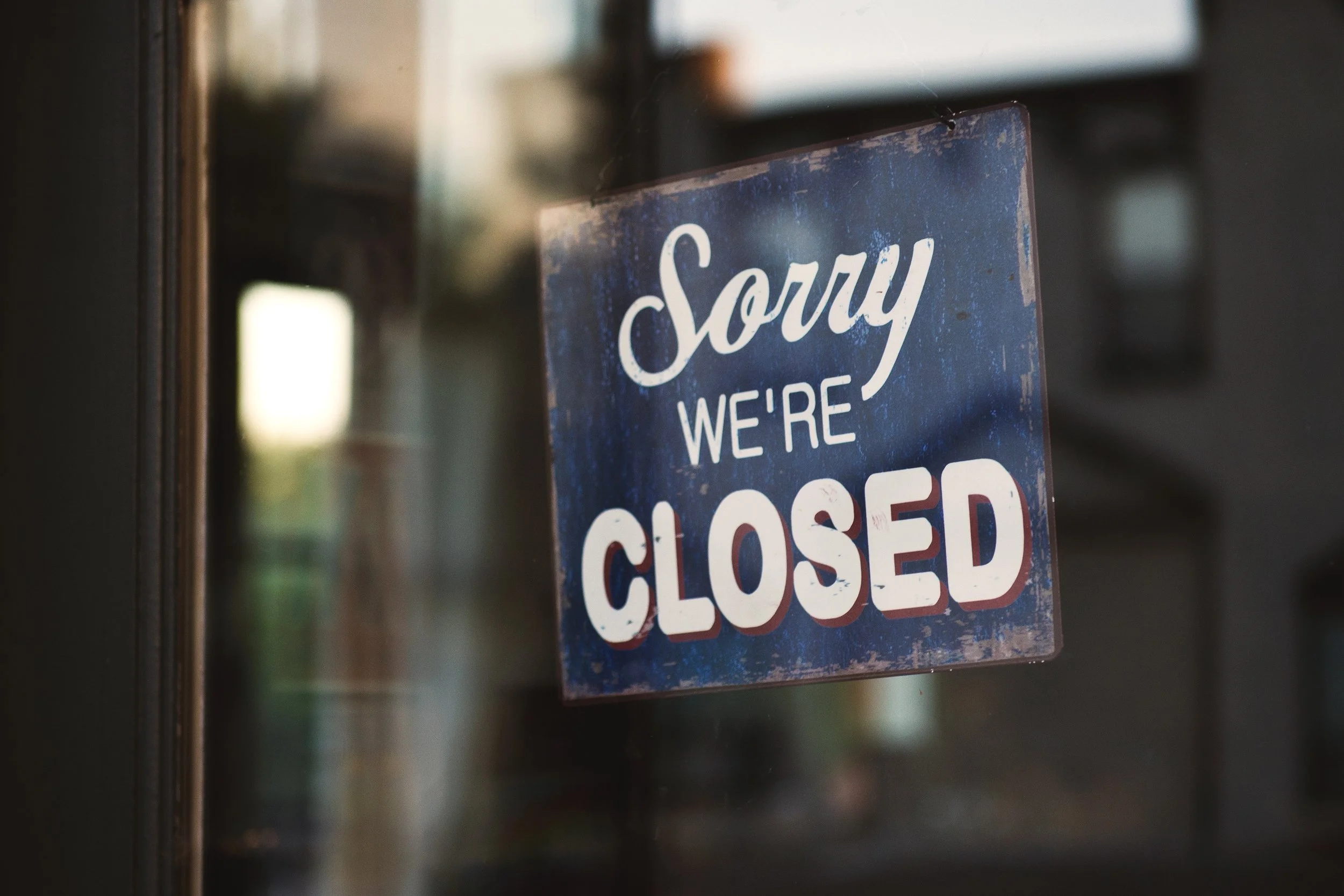Image suggestion: https://www.pexels.com/photo/blue-and-white-sorry-we-re-closed-wooden-signage-1171386/
About 20% of small businesses fail within their first year, and about 50% fail within their first five years. It’s clear to see that these aren’t great odds, so if you’ve found yourself in a situation where your business hasn't worked out, then know that you’re in good company. With the way the world is currently with the war in Ukraine, Brexit, post-pandemic backlogs, and a cost of living crisis, just about every business has struggled. Whether it’s customers not having as much to spend as they once did, rising costs of materials, difficulty sourcing materials, or disrupted supply chains, it’s swayed the odds even more in the direction of failure for small businesses. If this has happened to you, read on to find out what you need to do when you need to ‘close up shop.’
Know when to cut your losses
If you’ve been losing more than you’ve been making for a while, and it seems unlikely things will recover, then cutting your losses and ending the business means you won’t continue losing more money and running up more debt. This can be a difficult decision; setting up a business is hard work, and sometimes there will be months where profits are low, which end up recovering later. But don’t wait too long, especially in our current financial climate.
Recouping some costs
Once you’ve made the decision to end your business journey, it makes sense to recoup as many costs as you can. This can help you to pay off debts or creditors you owe to, and generally ensures that your business journey isn’t leaving you in too much debt when all is said and done. If you’re owed money from other companies or customers, aim to get this back- in some cases, you may need to hire legal help to do this if the balances are high and worth more than the costs of doing so. Sell off any remaining stock or materials you have; you can also sell things you might not have considered. Look into selling Instagram account and other social media accounts, customer marketing lists, and more.
Prepare for the future
Small business failure is not always a negative thing, as it can be an opportunity as an entrepreneur to learn from your mistakes and try again with a new business idea later down the line. If you’ve declared bankruptcy, then you will need to wait until this has been discharged before you set up another venture. But it’s something you can come back to later on with a wealth of knowledge under your belt. If you know that you fell short in business due to a lack of education or experience, you could take courses or undertake work experience before setting up again to secure your chances of success even more.
Have you ever run a business that hasn't worked out, and did you go on to start another venture later on? How did your previous failure help with your future success?


